 Petzlover
Petzlover Briquet Griffon Vendeen is originated from France but Dingo is originated from Australia. Both Briquet Griffon Vendeen and Dingo are having almost same height. Briquet Griffon Vendeen may weigh 8 kg / 17 pounds lesser than Dingo. Briquet Griffon Vendeen may live 6 years less than Dingo. Both Briquet Griffon Vendeen and Dingo has almost same litter size. Briquet Griffon Vendeen requires High Maintenance. But Dingo requires Moderate Maintenance
Briquet Griffon Vendeen is originated from France but Dingo is originated from Australia. Both Briquet Griffon Vendeen and Dingo are having almost same height. Briquet Griffon Vendeen may weigh 8 kg / 17 pounds lesser than Dingo. Briquet Griffon Vendeen may live 6 years less than Dingo. Both Briquet Griffon Vendeen and Dingo has almost same litter size. Briquet Griffon Vendeen requires High Maintenance. But Dingo requires Moderate Maintenance
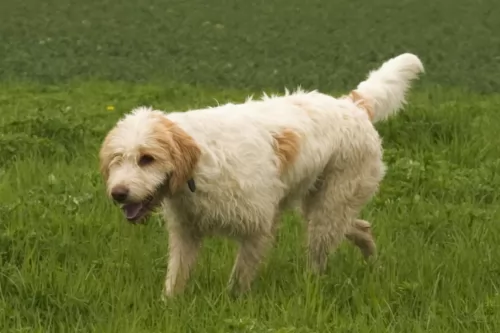 The Briquet Griffon Vendeen, a product of France is a hunting down bred down from the Grand Griffon Vendeen. The two dogs are descendants of the Gaul’s Canis sequsius and the Gris de St. Louis hounds. They are one of four dogs with rough coats from the Vendeen area along France’s west coast. Many of these lines were decimated by the Second World War and are still not found in France today.
The Briquet Griffon Vendeen, a product of France is a hunting down bred down from the Grand Griffon Vendeen. The two dogs are descendants of the Gaul’s Canis sequsius and the Gris de St. Louis hounds. They are one of four dogs with rough coats from the Vendeen area along France’s west coast. Many of these lines were decimated by the Second World War and are still not found in France today.
The Briquet Griffon Vendeen survived the war due to a French dog show judge named Hubert Dezamy, who restored the breed and it is mainly a show dog today. Many of Frances royalty prior to the French Revolution favored the breed as show dogs as well. The Briquet was originally developed for hunting of smaller game and is a scent hound. The larger Grand Griffon Vendeen was used in the hunt for large game, namely wolves and boar.
The Briquet Griffon Vendeen is recognized by the UKC and the FCI but not by the AKC and the breed is hardly known outside of France
 The Dingo dog was in all probability, introduced to Australia thousands of years ago. He isn’t your usual domesticated dog and in fact it is a feral dog native to Australia.There are stories that suggest that while they may have once been pets, they were abandoned so that they reverted back to their wild state.
The Dingo dog was in all probability, introduced to Australia thousands of years ago. He isn’t your usual domesticated dog and in fact it is a feral dog native to Australia.There are stories that suggest that while they may have once been pets, they were abandoned so that they reverted back to their wild state.
They became pests for Australian farmers, going for their livestock, and huge fences were erected. The different climates in Australia have meant different kinds of Dingo developing, so while the desert ones are like the desert sands - golden yellow to red the alpine ones are rarer and are cream colored.
These wild canines were also introduced to Southeast Asia some 3,500 years ago, however the dog’s exact origin is debatable. There are any number of groups of people who could have brought the dingo to Australia, and among some of these are Indian mariners or maritime hunters.
The dog has been found in many parts of mainland Australia but never became established in Tasmania.There has also been an effort to remove the Dingo from farming areas. It is interesting to note that the first Dingo, referred to as the Australian dog, was registered at the London Zoo in 1828.
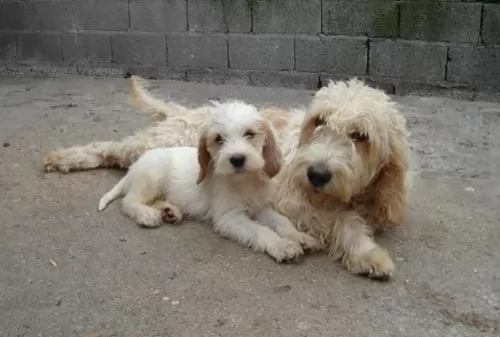 This medium sized dog is stocky and well proportioned. He looks very much like the Grand Griffon Vendeen only smaller. It is less muscular than other hound dogs and it holds its tail up when working. The head is short with a medium/long muzzle. It has low set ears and a flat skull with large, dark eyes and pronounced eyebrows. It also has a mustache.
This medium sized dog is stocky and well proportioned. He looks very much like the Grand Griffon Vendeen only smaller. It is less muscular than other hound dogs and it holds its tail up when working. The head is short with a medium/long muzzle. It has low set ears and a flat skull with large, dark eyes and pronounced eyebrows. It also has a mustache.
 An interesting fact with these fascinating feral dogs, is that like humans, they’ve got rotating wrists. This characteristic of theirs allows them to use their paws much like the human hand to catch their prey. A domesticated Dingo can therefore learn how to open doors.
An interesting fact with these fascinating feral dogs, is that like humans, they’ve got rotating wrists. This characteristic of theirs allows them to use their paws much like the human hand to catch their prey. A domesticated Dingo can therefore learn how to open doors.
The Dingo is a medium sized dog standing at roughly 52 – 60cm in height, measuring up to 1.2 meters in length and weighing roughly between 23 to 32kg.
He has long canine teeth, a long muzzle, upright ears and a long, thick tail. The coat is essentially one color, sandy, white, cream, tan or black and sometimes there are white markings on the chest, the paws and around the muzzle.
The fur is typically shortish and thick — though the hair's thickness and length will depend on the climate of the area. The Dingo is a moderate shedder and a good brushing of the coat twice a week will keep the thick coat shiny and healthy.
These wild canines are social animals, and in the wild they live in packs. There are some that opt to live on their own.
They’e territorial, but they are able to share their living space with humans. They’re generally shy around humans, but a Dingo that is trained and socialized can get along well with children and pets in the home.
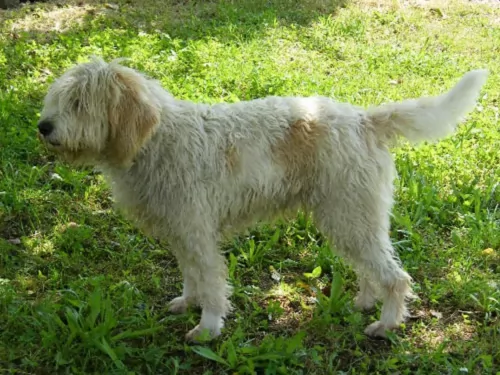 The Briquet Griffon Vendeen is a smart, attentive and sensitive dog. It is easy to train. They are loyal and bond quickly with their owner/trainer. These are enthusiastic dogs with a lot of stamina and get along with dogs and children. They don’t like to be told what to do. They respond well if you bribe them with treats or play with them. They are patient, extroverted and happy dogs.
The Briquet Griffon Vendeen is a smart, attentive and sensitive dog. It is easy to train. They are loyal and bond quickly with their owner/trainer. These are enthusiastic dogs with a lot of stamina and get along with dogs and children. They don’t like to be told what to do. They respond well if you bribe them with treats or play with them. They are patient, extroverted and happy dogs.
 Dingoes have been domesticated successfully. Some people swear by them as making a fantastic pet. However, they’re wild dogs and can be unpredictable.
Dingoes have been domesticated successfully. Some people swear by them as making a fantastic pet. However, they’re wild dogs and can be unpredictable.
There are others who have tried to keep the Dingo as a pet but who have discarded them when they proved to be a danger in the home.
Dingoes can be trained but they’re high energy dogs and require a lot of exercise. How do you feel about owning a Dingo as a pet? Many people feel that its not fair to bring an essentially wild animal into your home. They feel that there are plenty of rescue dogs dying for a home without human beings searching in the wilds for an unusual pet, and regretting it later on.
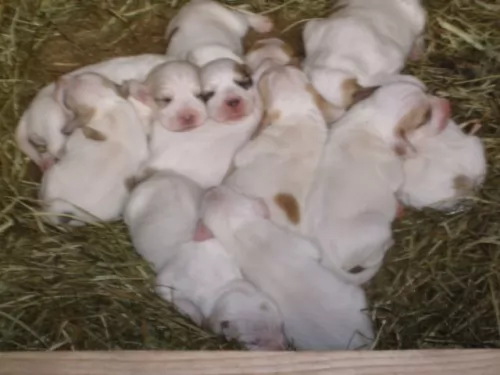 They are bred to be healthy and hardy, but still have some health concerns. These include:
They are bred to be healthy and hardy, but still have some health concerns. These include:
This is a frightening disease if you find your dog has it. It is characterized by a high fever and an intense hypersensitivity to touch. Aseptic Meningitis is an inflammation of the brain. It is caused by an infection and the most common ones include:
 The Dingo is a long-lived dog and you can expect your Dingo to live till anything between 15 and 20 years.
The Dingo is a long-lived dog and you can expect your Dingo to live till anything between 15 and 20 years.
When it comes to health issues, they are robust and resilient, having less medical problems to contend with than your regular dog.
However if you see that your Dingo is not his usual robust, energetic self, get him to the vet as soon as you can.
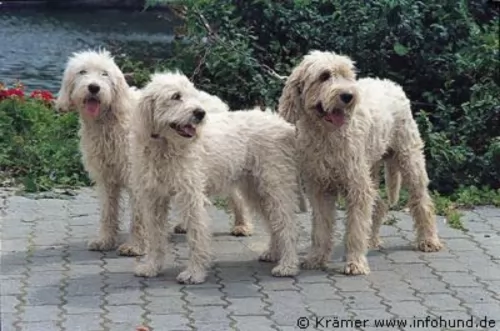 Don’t overfeed your Briquet Griffon Vendeen. Give her at least 2 meals of high quality dry food – two and one half to three cups daily.
Don’t overfeed your Briquet Griffon Vendeen. Give her at least 2 meals of high quality dry food – two and one half to three cups daily.
Every type of Griffon is a strong hunter and has strong instincts. The Briquet is no different. They need to be able to hunt as this is one of the strongest of scent hounds. They need a fenced in yard at the very least to explore and smell. They also enjoy long walks with new smells. Stay in shape because your Briquet Griffon Vendeen has stamina to share.
They love to play in leu of hunting. The games they love include frisbee, retrieving balls, and learning new tricks. They need mental stimulation as well as physical.
 Caring for your Dingo will be different to caring for your usual pet dog. You have to remember the Dingo is an ancient, wild species with some unique characteristics. Having a Dingo as a pet and companion may not be an easy task, and it is why many people selfishly dump their Dingoes – they didn’t quite live up to what they had in mind.
Caring for your Dingo will be different to caring for your usual pet dog. You have to remember the Dingo is an ancient, wild species with some unique characteristics. Having a Dingo as a pet and companion may not be an easy task, and it is why many people selfishly dump their Dingoes – they didn’t quite live up to what they had in mind.
Your Dingo, just like any other dog you’d have, will require training and socialization, and the earlier the better. No training will simply mean you having an unruly pet in the home.
Your Dingo can be fed just like you would with your other dogs. You can feed him quality dog kibble as his main diet, but you can also add in cooked rice, vegetables and chicken. Your Dingo is essentially a wild dog, so you will definitely want to include some raw meat into his diet from time to time as well.
A Dingo is used to running free so he will require plenty of outdoor exercise. He can also be put on a leash and taken for a walk. He’ll love joining you in your activities such as running alongside you as you jog or cycle. He can adapt to life in the city if he is well exercised but he isn’t suited to a small home or garden.